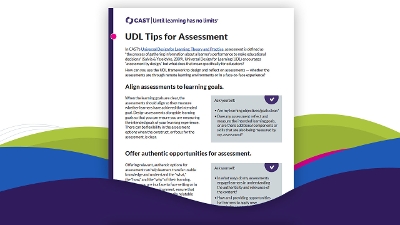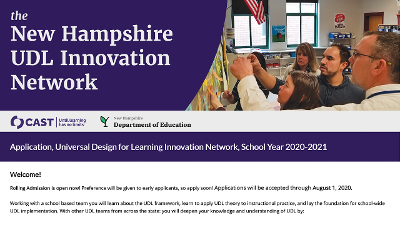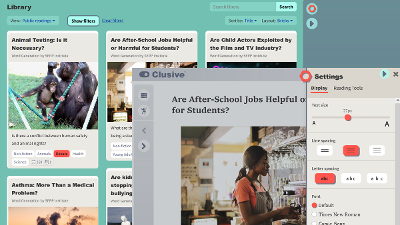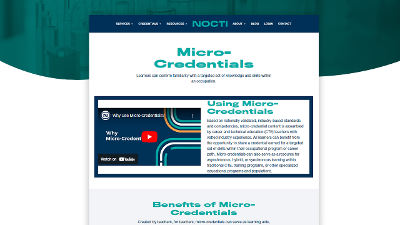Showing results 71-80 of 196 for Engagement
Search results
-
Article
T. Hall, et al., 2003
Curriculum-based assessments (CBA) are defined as any set of measurement procedures that use direct observation and recording of a student’s performance in a local curriculum as a basis for gathering information to make instructional …
-
Quick Read

CAST, 2020
Universal Design for Learning (UDL) encourages “assessment by design,” but what does that mean specifically for educators? How can we use the UDL framework to design and reflect on assessments?
-
Article
D. Glass. et al., 2013
In this article, the authors examine the intersection of arts education and Universal Design for Learning (UDL) to inform the design of better art, curricula, and UDL checkpoints. They build a case for the contribution of the arts ...
-
Article
J. Gronneberg & S. Johnston, 2015
This article summarizes Universal Design for Learning, a framework for the design of materials and instructional methods that are usable by a wide range of students.
-
Article
D. Rose, et al., 2014
While the Common Core State Standards can shape our expectations for the curriculum, they cannot answer the complex question facing classroom educators each day: how to guide students to reach those standards. In this article written ...
-

Monday, July 6, 2020
Are you an educator working in a New Hampshire school? Applications for the New Hampshire UDL Innovation Network 2020-2021 school year are due August 1, 2020!
-
Monday, September 12, 2016
Senior U.S. Department of Education officials visit CAST and local schools that practice UDL during "Opportunity Across America" Back-to-School Bus Tour. Sue Swenson, acting assistant secretary for the Office of Special Education and Rehabilitative Services (OSERS), and Ruth Ryder, acting director of the Office of Special Education Programs (OSEP), will visit CAST on Tuesday afternoon for a “Learning and Listening” roundtable discussion of hot-button topics such as ways to improve K-12 literacy instruction, assessment, classroom products, and teacher preparation to make schools more inclusive and effective.
-

CAST, along with partners from SRI International and the Inclusive Design Research Centre, are exploring and creating tools to ensure that K-12 students with disabilities get engaging, high-quality accessible digital learning materials, especially open education resources (OERs).
-

The micro-credential and accompanying curriculum focus on one aspect of the UDL Guidelines, Checkpoint 8.1: Heighten salience of goals and objectives. The materials and resources are all designed to help CTE educators understand how they can use UDL to help learners sustain their effort and persistence. The materials include tangible strategies and examples specifically for CTE teachers, administrators, and staff.
-

We collaborate with community and technical colleges, four-year institutions, and apprenticeship programs to implement UDL-based strategies and tools into their learning environments.
